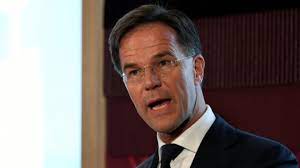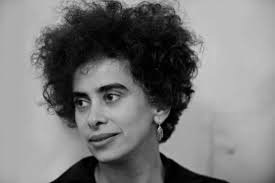Dutch Coalition Government Fails Due to Immigration Issue; PM Mark Rutte Resigns
The Dutch government disintegrated on Friday as a result of the four-party coalition’s inability to come to an agreement on the issue of immigration owing to irreconcilable disagreements.
A general election is likely later this year, as shown by Mark Rutte’s retirement as the longest-serving prime leader of the country on Friday.
According to reports, Rutte and his administration would continue to serve as caretakers until a new governing coalition is elected.
In The Hague, Rutte told reporters, “It is no secret that the coalition partners have quite diverse views on migration policy.
“Unfortunately, we must now come to the conclusion that these disagreements cannot be reconciled. Because of this, I shall right now… submit the written resignation of the whole Cabinet to the monarch,” said Rutte.
Geert Wilders, the head of the Freedom Party, which is opposed to immigration, tweeted, “Quick elections now.”
Jesse Klaver, the head of the Green Left, called for elections and said to Dutch television station NOS that “this country needs a change of direction” across the political spectrum.
Details of the event
The coalition government disintegrated after the parties were unable to agree on a migration strategy and all agreed that they could not continue to work as a coalition.
On Wednesday and Thursday, Rutte presided over discussions that went into the wee hours.
This choice has made the ideological fissures, which have existed since the coalition was sworn in little over 18 months ago, more obvious.
Due to differences in opinion, the coalition government was divided into two factions, each with two parties. The Christian Democrats and Rutte’s conservative People’s Party for Freedom and Democracy advocate tighter immigration policies, but D66 and fellow centrist party ChristenUnie or Christian Union oppose them.
Rutte’s coalition spent months attempting to put in place a pact to lessen the flow of new migrants entering the nation of about 18 million people.
migration problems in Europe
Migration-related topics are now often discussed across Europe, and they will likely be a major topic of debate during the elections for the European Union’s parliament the following year.
Thousands of individuals have also escaped the protracted conflict in Ukraine.
Over 21,500 non-Europeans applied for asylum in the Netherlands in 2022, while tens of thousands more came to work and study there, according to the Netherlands’ statistics office.
Housing, which was already in low supply in the densely populated nation, has been strained by the numbers.
The Rutte administration attempted to enact a law requiring towns to lodge newly arriving asylum seekers, but it hasn’t yet been approved by both chambers of parliament.
The prime minister also supported the 27-nation bloc’s attempts to limit immigration. Along with his Italian colleague and the head of the EU’s executive commission, Rutte traveled to Tunisia last month to announce a financial assistance package worth more than 1 billion euros to help the country’s faltering economy and reduce migration to Europe.







